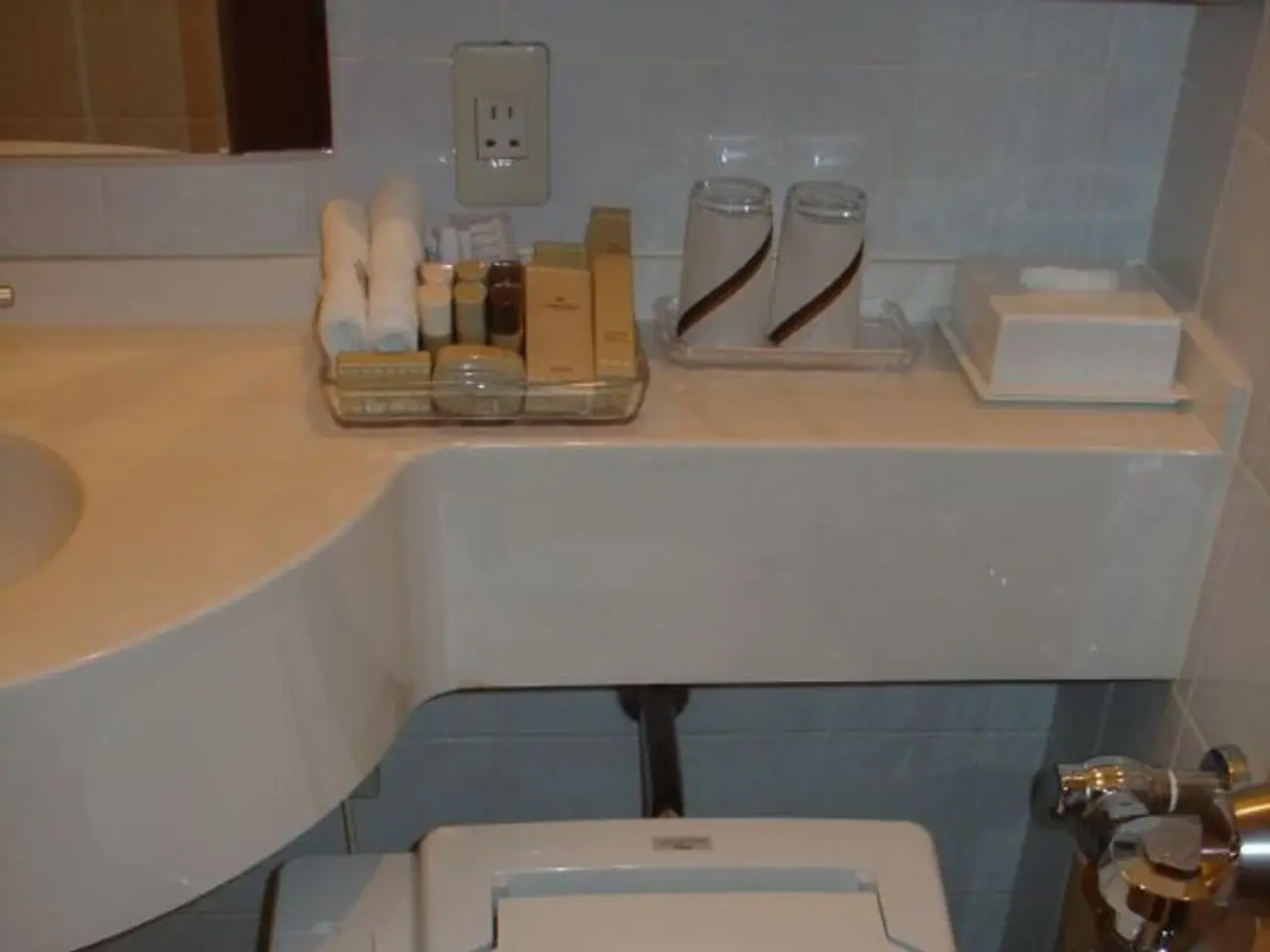Hemorrhoid Bleeding: Causes, Signs, Remedies, and Prevention Strategies
Blood in stool can be a concerning symptom, and while hemorrhoids are a common cause, it's essential to be aware of other potential reasons. Hemorrhoids are swollen blood vessels in and around the anus and rectum, often caused by straining during a bowel movement.
If you notice bright, red blood staining the toilet paper or feces, or traces of blood in the toilet bowl, you may have bleeding hemorrhoids. However, other causes could be at play, such as anal fissures, diverticular disease, inflammatory bowel disease (IBD), colorectal polyps or cancer, peptic ulcers and gastritis, anal inflammation or proctitis, or oesophageal varices.
Anal fissures are small tears in the lining of the anus that cause sharp pain and bleeding during bowel movements. Diverticular disease occurs when small pouches in the colon wall become inflamed or infected, leading to bleeding. IBD, conditions like ulcerative colitis and Crohn’s disease, cause inflammation of the gastrointestinal tract, leading to bleeding. Colorectal polyps or cancer, peptic ulcers and gastritis, and anal inflammation or proctitis can also cause rectal bleeding. Oesophageal varices, enlarged veins in the esophagus, can bleed and cause gastrointestinal bleeding, though less commonly manifesting as bright red blood in stool.
If you experience severe pain, constant bleeding from the hemorrhoid, more than a few drops of blood in the toilet bowl, perhaps with blood clots, a bluish lump on the anus, suggesting a thrombosed hemorrhoid, or any other symptoms that do not improve after 7 days, you should seek medical help immediately. A thrombosed hemorrhoid is when a blood clot develops within the hemorrhoid, leading to significant bleeding and severe pain.
Fortunately, over-the-counter treatments like creams or suppositories containing steroids, bulk-forming agents, stool softeners, rectal ointments with witch hazel, and fiber supplements can help relieve hemorrhoid symptoms. Additionally, good toilet habits, such as using the bathroom when feeling an urge, avoiding excessive straining or pushing, limiting time on the toilet, avoiding excessive wiping, and increasing water intake, can help prevent bleeding hemorrhoids. Increasing fiber intake can also help improve bowel movements and reduce the risk of straining, making hemorrhoids less likely to bleed.
A sitz bath, a small plastic tub that fits over the toilet seat and filled with warm water (around 40°C), can help maintain hygiene and relieve pain and irritation related to hemorrhoids. Experts recommend a daily water intake of 8 or more glasses for people with hemorrhoids.
While the outlook for most cases of hemorrhoids is good, with conservative treatment resolving the issue in most cases, complications such as infection, thrombosis, incontinence, and urinary retention can occur. It's crucial to seek medical advice if you experience persistent or significant bleeding to identify the exact cause and initiate appropriate treatment.
- AQ's health and wellness blog often discusses chronic diseases, such as multiple sclerosis (MS) and type 2 diabetes, sharing tips for managing these conditions through nutrition, fitness, and mental health.
- For those living with MS, it's important to be proactive about skin care, especially for areas prone to pressure sores, as well as addressing potential complications like depression and Alzheimer's.
- In the field of medical-conditions research, scientists are increasingly interested in the predictive effects of CBD on mental health, obesity, and chronic kidney disease.
- As we age, it's not just our physical health that's at risk – conditions such as type 2 diabetes, depression, and chronic-kidney-disease increase the likelihood of cognitive decline.
- A healthy lifestyle, which includes a balanced diet rich in fiber, regular fitness and exercise, and proper skin care, can help protect against chronic diseases like diabetes, COPD, and obesity.
- When managing conditions like COPD, depression, or diabetes, it's essential to prioritize self-care and seek support for mental health when needed, as poor mental health can exacerbate chronic illnesses.
- For individuals struggling with chronic diseases or chronic kidney disease, it's crucial to work closely with healthcare professionals for appropriate treatment, medication management, and lifestyle modifications.
- In addition to maintaining a healthy lifestyle, science recommends regular check-ups and screenings to catch conditions like colorectal cancer or diabetes early, when they are more treatable.
- To prevent and manage hemorrhoids effectively, it's essential to maintain good fitness and exercise regimens, proper nutrition, and practice good toilet habits.
- For help alleviating the discomfort of hemorrhoids, try a CBD-infused cream or ointment, which can help with pain and inflammation, along with practicing good hygiene and implementing changes to toilet habits.




